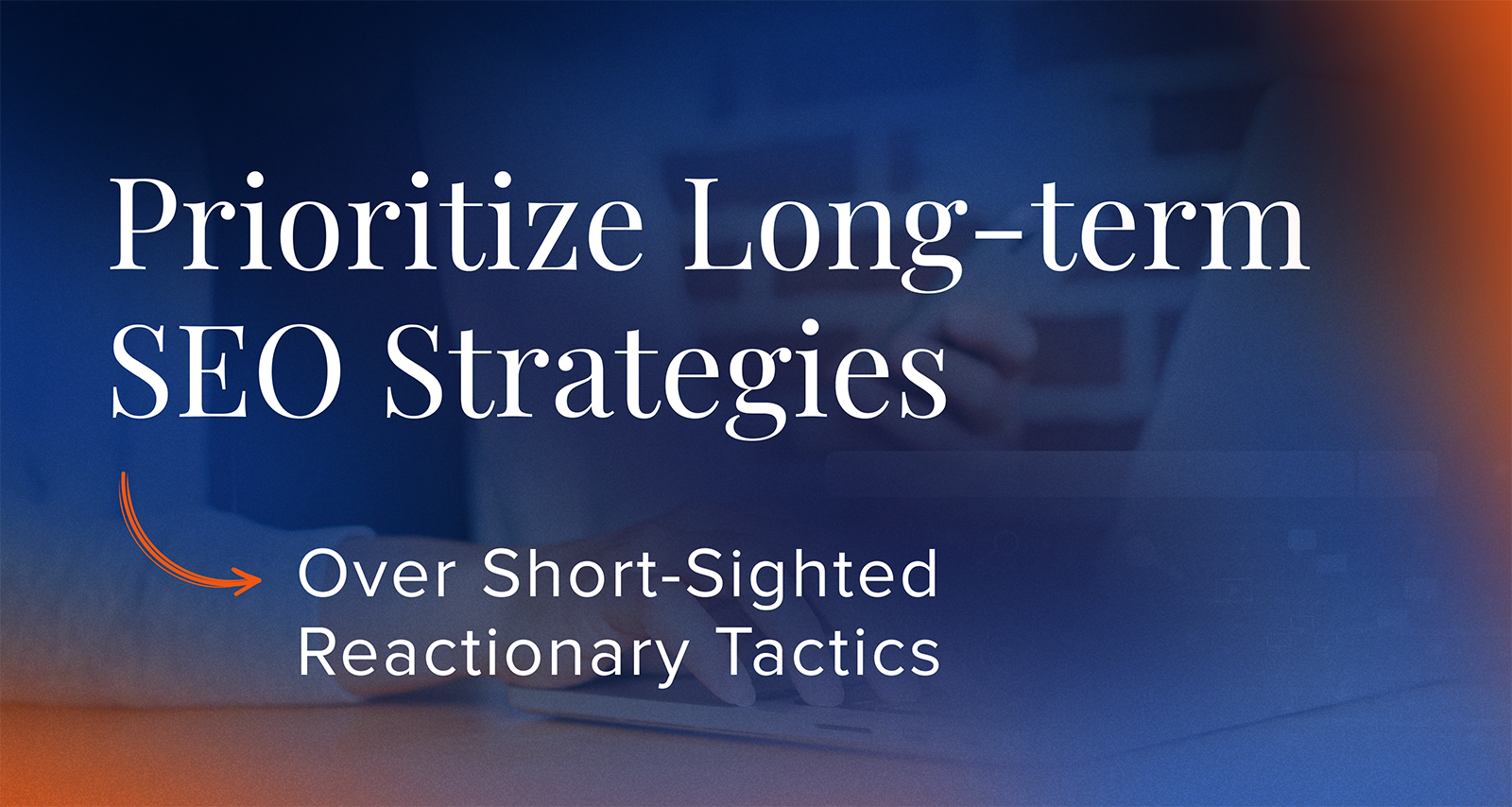Beyond SEO Best Practices: The Secret to Surviving Algorithm Updates
Published by Spinutech on September 20, 2024

Building the “perfect” website — one that follows every SEO best practice and remains optimized and well-performing to infinity and beyond — is an impossible task.
Why? Because SEO is an ever-changing landscape. What works today may not work tomorrow.
Understanding “best practices” is important, but the concept can sometimes be misleading. Best practices are guidelines based on communal SEO wisdom, but they are far from permanent rules. If a company built a website using only the best practices from 10-15 years ago, those strategies would be outdated and ineffective by today’s standards.
Just because something is a “best practice” does not ensure meaningful content or performance.
SEO Best Practices Have an Expiration Date
The shelf life of SEO best practices are often limited due to the rapid pace of algorithm updates, which force continuous adaptation. This year alone, Google has already introduced six major algorithm updates, with a focus on improving helpful content and reducing spammy results.
The cadence of algorithm updates makes it clear: “Best practices” can change like the tide. What was effective yesterday might be ineffective tomorrow, and companies that don’t maintain a proactive strategy risk compromising their rankings and site performance.
The best approach is to remain agile and adaptable, prioritizing genuine user value over checking boxes on an SEO to-do list.
The SEO Landscape Isn’t What It Once Was
Google’s search algorithms remain something of a mystery, with only the occasional glimpse into how search results are ranked. SEO best practices have been born from trial and error, with the SEO community piecing together what seems to work on a broad scale. However, just because certain tactics have worked for one site doesn't guarantee they’ll work for another. These generalizations can lead companies to implement irrelevant practices, often resulting in spammy content that doesn’t align with their target audience's needs.
It’s important to understand that best practices are guidelines, not hard-and-fast rules. Blindly adhering to them without considering your business's unique context can lead to wasted effort or even penalization for spam-like behavior.
When SEO was in its infancy, fewer algorithm updates meant less competition and simpler methods to improve rankings. Practices like keyword stuffing were once sufficient to land on the first page of search results, and black hat tactics like link schemes were more prevalent.
As Google’s algorithm has evolved, so have the requirements for ranking — shifting from manipulative tactics to a focus on genuinely helpful and high-quality content. Today, SEO strategies need to align with user intent, content quality, and overall user experience.
There Are No Quick Fixes, Only Long-Term Strategies
Algorithm updates can lead to sudden traffic drops, prompting companies to look for quick solutions to regain lost ground. However, there are no magic bullet solutions in SEO — especially when there are site-wide quality issues. A quick-fix mentality can often result in hasty changes that may do more harm than good. Recently, Google updated its documentation, specifically noting that improvements to site quality are cumulative and take time to reflect in search rankings. This highlights the need for thoughtful, long-term strategies over reactionary tactics.
If you want our advice, these should be the five tenets of your SEO strategy moving forward:
- Create content for your users, not just search engines. Search engines aim to deliver the most relevant and helpful content to users. Your priority should be to build content that addresses your audience’s needs, questions, and pain points. When content is created with users in mind, the search engine rankings tend to follow naturally.
- Avoid one-size-fits-all strategies. While it’s important to be aware of SEO best practices, they should not be the sole driver of your content strategy. Recognize that not every strategy will work for your business and that algorithm updates will require you to adapt.
- Prioritize technical SEO for long-term performance. Elements like site speed, mobile-friendliness, structured data, and crawlability play a critical role in your site's visibility and ranking. With Core Web Vitals becoming key ranking factors, focusing on technical SEO ensures your site is optimized for both users and search engines.
- Leverage data-driven insights for proactive optimization. By utilizing analytics tools like Google Analytics and Search Console, you can track user behavior, content performance, and keyword trends. This data empowers you to refine your strategy, address issues before they impact rankings, and make informed decisions that drive results.
- Partner with an SEO agency for strategy and adaptability. Building a strategy that remains effective through the shifts in organic search requires ongoing analysis, testing, and adaptation. Working with an experienced SEO agency can help build a strategy that is purpose-driven, unique to your business, and always ready to pivot as needed.
Your SEO Strategy Should Be More Than a Checklist
If your sole focus is on checking the boxes for SEO best practices, your content may not be resilient in the face of algorithm changes. Search engines exist to serve their users, and they favor content that provides helpful, relevant, and high-quality information. By prioritizing your users’ needs and adopting a strategic, adaptable approach, you will not only improve your site’s performance but also build a foundation for long-term success in SEO.
At Spinutech, we focus on building SEO strategies that are both purposeful and adaptable. Our approach is based on building a foundation of pillar-focused content, leveraging industry trends and seasonality, utilizing advanced tracking and continuous monitoring, and empowering our functional teams to cross-collaborate for a full-funnel strategy.
Let’s chat about how we can work together to build a sustainable SEO strategy for your business.